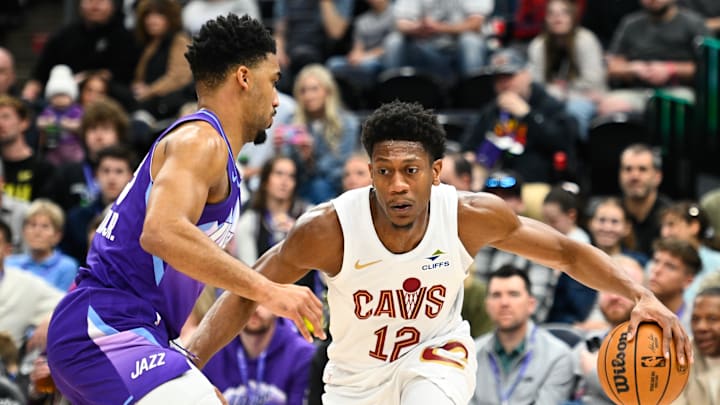At the 2025 NBA Trade Deadline, the Cleveland Cavaliers traded Caris LeVert and Georges Niang to the Atlanta Hawks for forward De'Andre Hunter. In doing so, the Cavs made both a commitment and an acknowledgment: their future is going to be expensive.
The Cavs managed to step out of the luxury tax by making that trade, resetting the clock on the "repeater" tax penalties that the league levies on teams that spend significantly over the salary cap for multiple seasons. At the same time, they traded LeVert's expiring deal for Hunter's long-term money; he will be making $23.3 million next season and $24.9 million the season after that.
The Cavaliers' roster is on track to be extremely expensive over the next few seasons. If Evan Mobley makes an All-NBA team and/or wins Defensive Player of the Year, the Cavs will be thrust deep into the luxury tax, likely well past the second tax apron. Even if he somehow doesn't, the Cavaliers will be pushing up against the second apron unless they offload money.
The costs only increase moving forward, especially if the Cavaliers try to keep this core together. If they win a championship this season it will be fait acompli that they bring back the band; the Boston Celtics are biting a similarly expensive bullet this season after winning it all. Even if they don't win the title, the Cavs have proven themselves good enough that they will likely give this group another run at it - with all of the financial penalties that come with it.
The Cavs do have something of a competitive advantage when it comes to fielding an expensive team, as Dan Gilbert is one of the league's wealthier owners and has proven he is willing to pay the tax for great teams. Yet even Gilbert may balk at the changes the NBA is instituting this summer.
NBA is bringing down the hammer on expensive teams
The NBA is consistently levying new rules to make it miserable for expensive teams. They put the repeater tax in place as mentioned before, but the wealthiest owners like Steve Ballmer or Joe Lacob have weathered that storm. Then came the second apron, which puts team-building restrictions on teams that spend significantly higher than the salary cap.
This summer another phase rolls out, where the luxury tax penalties on teams will shift. Teams slightly into the luxury tax will pay smaller penalties, making it more palatable to go a small amount into the tax. On the flip side, the charges for those teams deeper into the tax are skyrocketing, making it extremely punitive to have a high payroll.
This season, for example, if you are $23 million into the luxury tax, you would pay $3.75 for every dollar spent. That is painful, but something teams have done before - in fact, the Boston Celtics, Minnesota Timberwolves and Phoenix Suns are doing it right now (the Suns are over $40 million above the tax line). If you are in the repeater tax, you would pay $4.75 for every dollar.
Next season, if you are $23 million above the tax, you will pay a whopping $5.25 for every dollar spent, and the repeater amount rockets up to $7.25 million. That's about where the Cavaliers are projected to land, depending on what happens with Evan Mobley and whether they bring back Ty Jerome. Re-signing Jerome not only shackles them to the second apron restrictions, it will mean spending five or more times his salary amount just to bring him back.
The Cavaliers will have some difficult decisions to make. Can they justify spending such a high amount for this team? Can they do it for multiple seasons? Are the team-building restrictions or the luxury tax penalties more punitive? These are questions the front office and ownership have to grapple with. And they could lead to trading away a key member of the roster primarily to save money.
There are rumblings that the Boston Celtics are considering the same thing. The Minnesota Timberwolves traded Karl-Anthony Towns this past summer in large part to start a path to getting under the second apron. The LA Clippers big goodbye to Paul George (and dodged a bullet). More teams will likely come to similar conclusions. The Cavaliers could be one of them.
One thing is for certain: the NBA does not want teams to stay expensive, which means they don't want dynasties. If the Cavaliers want to win a title, their window is short. The new NBA, and its punishments, are not to be trifled with.
